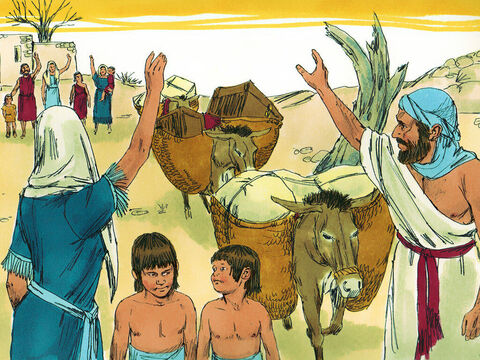[For articles on the “Sabbath of Va'atchanan" in Hebrew, click here]
Rabbi Dr. Yossi Feintuch was born in Afula and holds a Ph.D. in American history from Emory University in Atlanta. He taught American history at Ben-Gurion University.
Author of the book US Policy on Jerusalem (JCCO).
He now serves as rabbi at the Jewish Center in central Oregon. (JCCO).
* * *
‘’Anochi’’ means ‘’I’’, and it is the word that God chooses to introduce H/self at the opening of the Decalogue -- the main element in this weekly Torah portion. But immediately thereafter we also come to understand that ‘’Anochi’’ (i.e., God) does not tolerate ‘’other gods beside ME… for I am the Lord your God, a jealous God…’’ (Deuteronomy 5: 8-9). Thus, the word also becomes synonymous with selfish, namely, I and no one else. Interestingly, Moses invokes this word to refer to himself, as the human intermediary between God to the people, presently poised to hear the Big Ten words of God: “[at that time] Anochi (I) was standing between the Lord and you to declare to you the words of the Lord…” (D 5:5).
A Hasidic insight into this verse does not see Moses as speaking of himself; rather, Moses means to say: ‘’Selfishness was standing between the Lord and you…’’. Namely, this word ‘’Anochi’’ (I) is to be understood also as ‘’selfishness’’, the partition that bars a person from h/ God, for as long as one thinks of h/self-doing whatever s/he thinks fits or favors him with no regard for other considerations, let alone for God’s word, there could be no sense of closeness with God. And when one acts in such a way s/he turns the Hebrew word ‘’Ani’’ אני (or I, same as anochi) to ‘’ ‘ahni’’ עני(i.e., poor, or a poor state of being) -- as both words are heard in the same way.
Moses himself is a prime example of unselfishness; hence, his unique closeness to God. We first see it evident when he, an Egyptian prince (as he most likely saw himself), stopped an Egyptian taskmaster from lashing out fiercely at a Hebrew slave.
Moses did not need to do this; beating up on slaves was a common sight in slavery fields, and Moses was an Egyptian royalty. Nevertheless, Moses did not only end this abuse, he selfishly did not mind his own business again when intervening between two scuffling Hebrew slaves. At this time Moses sufficed with rebuking the aggressor individual for abusing his fellowman, a slave like him.
Moses demonstrated his unselfishness especially when he came to the defense of the seven victimized daughters of Jethro at the well of Midian. Single-handedly he repulsed the attempt by bullying shepherds at the well to steal the water that the seven sisters drew with great effort. Again, Moses did not mind his own business -- that would have meant staying out of any trouble, even in the face of injustice -- but he did care in all those three episodes for the innocent underdogs alone.
A prime example for selfishness is found in the period of the Chieftains when “In those days there was no king in Israel; everyone did what was right in his own eyes” (Judges 21:25). This may very well be a reference to the time when Elimelech, a dignitary and affluent resident of Beit Lechem, decided to leave his community behind – currently wallowing in severe and prolonged famine -- and move with his wife Naomi and their two sons to Moab. Since he was a person of means Elimelech could undertake such a relocation, whilst caring little about his fellowmen whom he had left behind in that city.
Indeed, Naomi – in a similar magnanimous show of unselfishness -- urged Ruth thrice to think first of her self-interest and stay in her native land of Moab, rather than return with her to Judea to a life of misery and want. But Ruth’s love for her triumphed over any selfish consideration that Orpah, Naomi’s other widowed daughter-in-law, chose in opting to stay in Moab, rather than accompany and join Naomi on her return to Judea, like Ruth did.
In conclusion, selfishness is a major wall between a person and God; when a person goes – especially when s/he would rather not -- to a place where there is sadness in order to express sympathy, or when s/he goes to another place where there is joy in order to rejoice with them, one defies selfishness and gain more proximity to the presence of God.
[For articles on the “Sabbath of Va'atchanan" in Hebrew, click here]

![[Picture: Thus, the word ‘’Anochi’’ also becomes synonymous with selfish, namely, I and no one else... Free Image - CC0 Creative Commons - Designed and Uploaded by 0fjd125gk87 to Pixabay]](https://www.xn--7dbl2a.com/wp-content/uploads/2021/07/אלוהים.jpg)



![[Picture: Moses as an Egyptian royalty... freebibleimages. Contributed by James Tissot Collection (The Jewish Museum)]](https://www.xn--7dbl2a.com/wp-content/uploads/2022/08/משה-כנסיך-מצרי.jpg)



